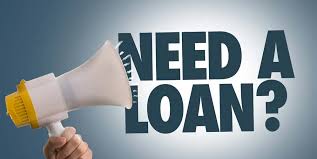Managing debt can feel overwhelming, especially when you have multiple bills to pay each month. If you’re juggling credit card payments, medical bills, and other loans, it can become confusing and stressful. This is where low-interest personal loans can come in handy, offering a way to simplify your finances and potentially save you money.
What Are Low-Interest Personal Loans?
Low-interest personal loans are loans that come with lower interest rates compared to traditional loans or credit cards. These loans are typically unsecured, meaning you don’t have to put up collateral like your home or car. Because the interest rates are lower, your monthly payments can be more manageable. This can make a big difference when you’re trying to pay off debt.
Why Consider Debt Consolidation?
Debt consolidation involves combining multiple debts into a single loan. Instead of making several payments each month, you only have to worry about one. This can reduce the stress of managing different due dates and interest rates. Plus, if you use a low-interest personal loan to consolidate your debt, you can save money in the long run.
How Low-Interest Personal Loans Help
- Lower Monthly Payments: One of the biggest advantages of low-interest personal loans is that they can lower your monthly payments. If you’re currently paying high-interest credit cards, switching to a low-interest personal loan can reduce the amount you owe each month. This can free up cash for other expenses or savings.
- Single Payment: Having one loan means one payment. This makes budgeting easier and helps you avoid missed payments, which can lead to late fees and further debt. With a single payment, you can focus on paying down what you owe without the confusion of multiple due dates.
- Predictable Payments: Many low-interest personal loans come with fixed interest rates, meaning your monthly payment will stay the same throughout the loan term. This predictability makes it easier to plan your budget, unlike variable-rate loans, which can change over time.
- Improved Credit Score: When you consolidate debt and pay it down, your credit utilization rate can improve. This is a key factor in your credit score. A higher credit score can open doors to better interest rates in the future, making borrowing cheaper.
Easy Payday Loans vs. Low-Interest Personal Loans
It’s important to distinguish between easy payday loans and low-interest personal loans. Easy payday loans are typically small, short-term loans that come with high-interest rates. They can be tempting because they’re quick and easy to obtain, but they often trap borrowers in a cycle of debt. The interest and fees can quickly pile up, making it hard to pay them off.
On the other hand, low-interest personal loans provide a more sustainable solution for debt management. They are designed to help you manage and reduce your debt rather than create new financial burdens. When considering your options, it’s wise to focus on loans that can offer you real benefits, like those low-interest personal loans that can simplify your finances.
How to Get Started with Low-Interest Personal Loans
If you’re thinking about consolidating your debt using a low-interest personal loan, here are some steps to help you get started:
- Assess Your Debt: Take a close look at all your debts. Write down the amounts, interest rates, and monthly payments. This will give you a clear picture of your current situation.
- Check Your Credit Score: Your credit score will affect the interest rates you can get on a personal loan. You can check your credit score for free through various online services. Knowing your score will help you understand what loan terms you might qualify for.
- Shop Around: Don’t settle for the first loan offer you receive. Different lenders may offer different interest rates and terms. Compare several options to find the best deal for your situation.
- Read the Fine Print: Before signing any loan agreement, read the terms carefully. Look for any hidden fees, such as origination fees or prepayment penalties. Understanding the full cost of the loan is crucial.
- Create a Repayment Plan: Once you’ve secured a low-interest personal loan, develop a plan to pay it off. Set a budget that allows you to make consistent payments, and try to pay extra when you can to reduce the overall interest you’ll pay.
In today’s fast-paced world, managing debt doesn’t have to be complicated. Low-interest personal loans can provide a straightforward way to consolidate your debt, making your financial life more manageable. By simplifying your payments and potentially lowering your interest rates, you can take control of your finances and work towards a debt-free future. If you’re considering this path, do your research and choose a loan that best fits your needs. Remember, it’s about finding a solution that works for you!




